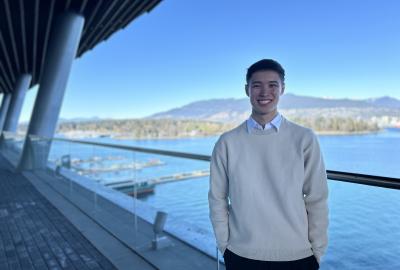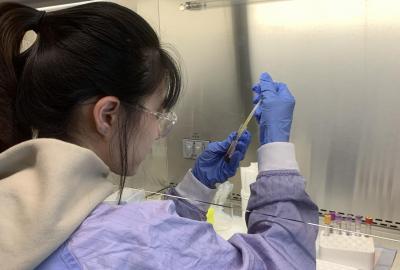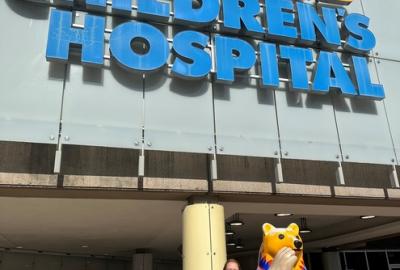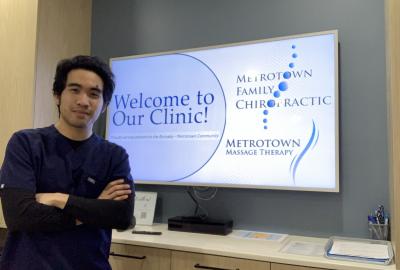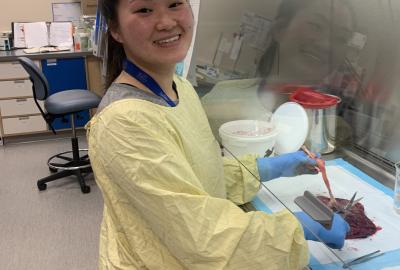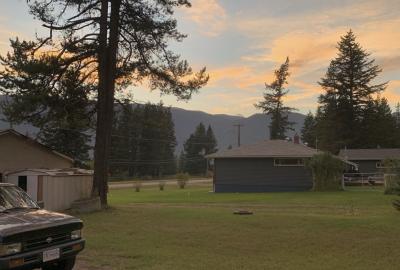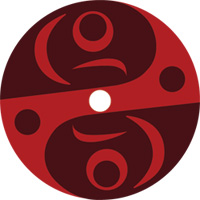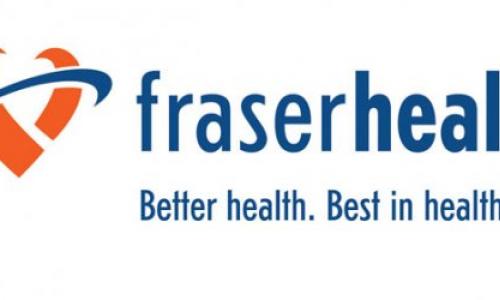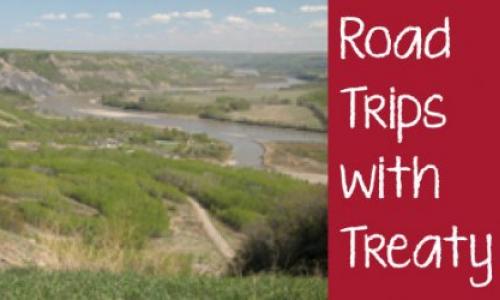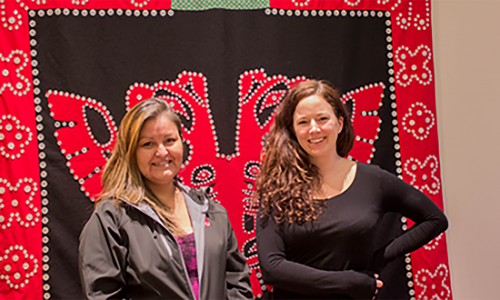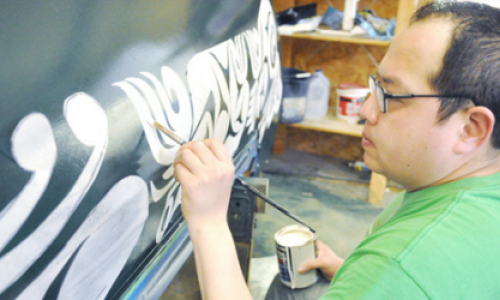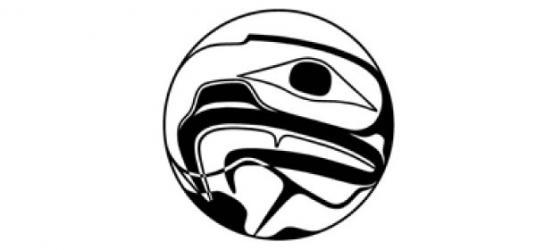
The Aboriginal Strategic Plan
Simon Fraser University continues to make progress regarding the implementation of its Aboriginal Strategic Plan. The Office for Aboriginal Peoples was created to work with partners in the on and off-campus communities in this purpose. The resulting teamwork approach has resulted in significant progress being made in many areas. The following is a report compilation of campus-wide, multi-unit Aboriginal initiatives occurring at SFU over the course of the past year.
Now rememeber the 10 major components of the Aboriginal Strategic Plan are:
1. Academic Program Development
2. Research Development
3. Student Recruitment, Retention, and Support
4. Liaison and Engagement with the Aboriginal Community
5. Aboriginal Knowledge Development
6. International Engagement
7. Infrastructure and Facilities Development
8. Aboriginal Integration and Leadership Development
9. Government and NGO Relationships
10. Communication Strategies
For easy analysis, Annual Reports will be divided into the ten categories listed above. An Appendix section will also contain more detailed mini-reports submitted by various Faculties/units.
Hence, please consider the Annual Report from the Office for Aboriginal Peoples for 2013:
1. Academic Program Development
-
Mr. Ron Johnston, Director, Office of Indigenous Education continues his tenure in the Faculty of Education. He is responsible for many initiatives in the Faculty including program development, community relationship-building, fund-raising, etc. In fact, Mr. Johnston was directly responsible for the acquisition of a $100,000 donation from the United Association of Journeymen and Apprentices of the Plumbing and Pipe Fitting Industry of Canada and the United States (UA Local 170) for the creation of an Indigenous student space in the Faculty.
-
The Executive MBA in Aboriginal Business and Leadership in the Faculty of Business continues on with its first program cohort, which will finish in 2014. The program began with twenty-seven students from across BC and Canada. Plans are underway for the next program cohort to begin in September 2014.
- Regarding the First Nations Studies Department: It enters its second year with Department status. First Nations Studies Certificate and Diploma Programs continue to be available through First Nations Studies. For those who have completed a Bachelor degree and who wish to learn about First Nations Studies, there is the Post-Baccalaureate Diploma in First Nations Studies. Regarding First Nations Certificate Programs, FNST courses are featured in the following three certificates: (1) First Nations Studies Research (2) First Nations Language Proficiency, and (3) Cultural Resource Management. Other departments offering programmes with FNST courses include: Certificate in Literacy Instruction in the Faculty of Education; Ethics Certificate in the Department of Philosophy; Legal Studies Certificate Program in the School of Criminology; Social Justice Certificate Program in the Department of Sociology/Anthropology; Environmental Literacy Certificate in the Faculty of Environment; Counselling and Human Development Post Baccalaureate Diploma Program in the Faculty of Education. For information concerning the above First Nations Studies certificate and diploma programs, please see http://www.sfu.ca/fns/programs/certificates/
- A list of SFU courses with “recognized” and/or “significant” Aboriginal content in them continues to be updated and expanded. These courses, from various Faculties/units, now number over 120. This list - with course credit and Writing, Quantitative, and Breadth (WQB) designations also listed - is updated annually and is available for perusal on the Office for Aboriginal Peoples website at: http://www.sfu.ca/aboriginalpeoples/files/Aboriginal-Indigenous-Courses.pdf
-
A Centre for First Nations Languages and its concomitant First Nations language programming continues to offer and expand programming and work with expertise in the Aboriginal community.
-
The Aboriginal Pre-University Bridging Programs in Community Education Program, Lifelong Learning has the following to report:
-
-
Lifelong Learning received the second year of University Priority Fund support for 2012-13 in the amount of $200,000 for the two Aboriginal Pre-University Bridge Programs under the strategic initiative "Support for Aboriginal students" with a target initiative being "To help recruit and retain Aboriginal students."
-
-
-
Relationships with Mitsubishi Corporation and MERCK Canada are being fostered in collaboration with SFU Advancement. As a result of generous donations, we were able to provide a limited number of study grants to students in the Aboriginal University Prep and Aboriginal Pre-Health Bridge Programs. The value of these study grants cannot be underestimated as it is well documented that Aboriginal students face significant financial hardships in their pursuit of higher education. The funds have provided an opportunity for twelve Bridge students to pursue their educational goals since the Fall of 2012.
-
|
|
-
The Faculties of Science and Health Sciences are pleased to report that theTraining of Aboriginal Youth in Biomedical Labs (TAYBL) Program was once again funded by Merck Canada for $50,000 a year for the years 2012-14. The program is designed to give Aboriginal students interested in Biomedical Science and Health Science careers an entry level research position in a biomedical lab, and the mentorship that accompanies being in a lab community. In addition, Merck Canada is providing approximately $100,000 to fund a Merck Canada Aboriginal Youth in Health Sciences Fund at SFU. The money is going towards funding various programs such as stipends for students in the Aboriginal Pre-Health Bridging Program (through Lifelong Learning) and undergraduate and graduate research stipends for Aboriginal students in the Faculties of Science and Health Sciences, including students interested in Population Health Sciences.
2. Research Development
-
Research projects in many areas, with an Aboriginal focus, continue to be done all over the university.
|
|
-
In the Fall of 2011, an external review of SFU’s Research Ethics Board (REB) and Office of Research Ethics (ORE) was undertaken. The External Reviewers submitted a final report in January 2012 with the Director, ORE (DORE) and REB Chair submitting responses in February and March 2012, respectively. After reviewing the report, the REB, DORE, and the Office of the Vice President, Research undertook a Senate-mandated review of R20.01 (Ethics Review of Research Involving Human Subjects), starting in the Spring of 2012. Together, with the recommendations received from the external review of SFU’s ethics policies and processes, the DORE, VPR, and REB drafted a revised R20.01 policy. Seeking input in the area of Aboriginal research, an ad hoc committee has been established which is working to develop some specific Indigenous research protocol recommendations which can in included in the final documents and which can be used as a basis for ethical research projects involving SFU and the Aboriginal community. This work continues on.
-
In 2013, Graduate Studies and the Office for Aboriginal Peoples partnered up to continue to offer a stipend fund for Aboriginal graduate students at SFU who would like to attend and present at academic conferences. The fund for this is currently set at $5,000 annually. Applicants may apply for up to $1000. This is being done on the recommendation of an ad hoc committee which was created to examine ways to increase Aboriginal student opportunities at the Graduate Studies level. The committee sees this particular opportunity as a way for graduate students of Aboriginal heritage to present their research in formal conference settings and as a way for them to increase their career development as researchers. Over the course of 2012-13, five such awards were presented to students.
-
Dr. Malcolm King and the CIHR-Institute of Aboriginal People’s Health continues its work at SFU/FHS. Dr. King has an academic appointment in the Faculty of Health Sciences and is thus available for teaching, mentoring students, and advising on CIHR-related “research” issues.
-
The Hakai Network for Coastal People, Ecosystems, and Management, based at Simon Fraser University, is an innovative, interdisciplinary team that conducts research, training, and education to support sustainability and conservation in Coastal British Columbia, with a focus on the Central Coast. The theme of the Hakai Network’s research is “Science in a Social Context”. It aims to conduct research that is transformative in its ability to make a difference in coastal British Columbia. The network works collaboratively with First Nations and other partners and is committed to community-based research. The Hakai Network receives its core funding from the Tula Foundation and works in close partnership with the Hakai Beach Institute, a research station on the Central Coast of B.C. operated by the Tula Foundation. The primary First Nations partners are the Heiltsuk Nation (in Bella Bella) and the Wuikinuxv Nation (in Rivers Inlet). Please see Annual Reportfor further details.
|
|
3. Student Recruitment, Retention, and Support
-
The latest complete record (which includes the latest provincial government data) indicates that there are between 600-650 self-identified Aboriginal students attending SFU in 2013-14. This includes over 100 graduate students.
-
In the Fall of 2013, one-hundred and twenty-five (125) self-identified Aboriginal students began their studies at SFU.
-
The Indigenous Recruitment Coordinator and supervisory staff continue to work successfully with the community to encourage Aboriginal people to attend SFU. Their specific plans for Indigenous recruitment include building stronger relationships with Lower Mainland high schools and school districts, colleges, and Indigenous communities.
-
Recruitment materials designed specifically for the Aboriginal community are updated and are well used by the Indigenous Recruitment Coordinator and assistant.
-
A document which highlights Aboriginal student recruitment and retention statistics continues to be created by the Office of Institutional Research and Planning. This document will be updated annually. The information in this document can be used for multi-fold purposes regarding Aboriginal recruitment and retention initiatives at SFU.
-
The BC Ministry of Advanced Education currently provides SFU with $52,200 annually for Aboriginal Emergency Assistance. Carry-over of unused funds is permitted. The fund is for Aboriginal post secondary students who require short term assistance to deal with personal emergencies. The SFU Terms of Reference for the fund have been established, and the dispensing of fund monies is being looked after by Awards and Financial Aid and the Indigenous Student Centre.
-
The Indigenous Student Centre (ISC) continues to work for and with Indigenous students — First Nations, Métis, and Inuit — to offer information and support services to enhance academic success in culturally respectful, relevant, reciprocal, and responsible ways. These include Peer Educator, Peer Mentor, and Peer Advising Programs; an expanded tutoring program that offers assistance in a wide range of subject areas; a Welcoming BBQ for new and returning students; and the Indigenous Honoring Feast for Indigenous graduates. The ISC works closely with the SFU Indigenous Recruitment Coordinator to ensure a smooth transition from the admissions process to successful semesters and, eventually, graduation. Progress continues regarding the renovation of the new Indigenous Student Centre/First Nations Student Association/Elders space in AQ 2002/03. The space will be available for occupation in 2014. Please see Annual Report for further details.
-
Established “contact people” in Academic Advising, Career Services, Graduate Studies, Awards and Financial Aid, and in the Community Education Program (Lifelong Learning) continue to work for and with Aboriginal people at SFU.
-
SFU continues to have a well-organized, well-funded, and well-supported First Nations Student Association (FNSA) to assist in Aboriginal student activities and other initiatives. For example, FNSA works in partnership with many units around the university to organize student events, to support student retention initiatives, and to partner up on university presentations e.g. Aboriginal speaker series. Two members of FNSA are also invited to sit on the SFU Aboriginal Steering Committee.Please see Annual Report for further details.
-
SFU has establishing measures to strengthen and increase support and services for Aboriginal graduate students. This includes better information regarding specific services, more support for the Supporting Aboriginal Graduate Enhancement Programs (SAGE), workshops to assist students in their graduate studies work, and more scholarships specific to Aboriginal graduate students. In 2013, a part-time Indigenous Graduate Student Support Coordinator and a part-time assistant worked for Aboriginal graduate students in the above initiatives and also to work at “building community” amongst the Aboriginal graduate student population.
4. Liaison and Engagement with the Aboriginal Community
-
An Aboriginal Steering Committee continues to provide direction to the Office for Aboriginal Peoples regarding priorities/initiatives in the Aboriginal Strategic Plan. The committee is composed of university students, staff, faculty, and senior administration, including the President, Vice President-Academic and Provost, Vice President-External, Associate Vice President-Students, and invited members of the public i.e. Aboriginal leadership or those in positions of authority in Aboriginal organizations.
-
Continuing regular discussions and partnership initiatives continue with the Native Education College and the Nicola Valley Institute of Technology. These involve approving transfer credit for courses and programs and ongoing tutoring initiatives – in math/science - involving SFU graduate students at these institutions.
-
A partnership has been established between SFU and the Vancouver Aboriginal Friendship Centre regarding the establishment of a one week summer camp for Aboriginal youth, which took place at SFU in the summer of 2013. Approximately twenty Aboriginal youth, aged six to thirteen, from the VAFC were involved in existing SFU summer camp activities involving sport, academics, tours and hikes, and some Aboriginal cultural activities.
-
Initiatives are ongoing in the Downtown Vancouver community i.e. the NEC initiatives, Aboriginal speaker events/series at the downtown SFU campuses, and Coast Salish Drumming and Singing Workshops at SFU Woodwards.
-
Work continues to be done on many fronts regarding ongoing and potential program and research initiatives involving specific First Nation and Métis communities in BC. Some of these are mentioned in past Annual Reports. As others of these come to fruition, they will be reported on in future Annual Reports.
-
The SFU Elders Program continues to make a positive difference on the SFU campuses. The program now has five elders from the local community associated with the program. Four work on the SFU Burnaby campus — in the Indigenous Student Centre and in the Office for Aboriginal Peoples — with another elder working with the Aboriginal Bridging Programs at SFU Surrey. These elders work with students, staff, faculty, and community in many capacities. They appear on the Burnaby campus to assist students twice a week and are being asked to appear at more and more university events/classes.
-
Regarding Aboriginal alumni initiatives at SFU: (1) An Aboriginal alumni e-mail list is maintained at the university. Information about SFU events and news is supplied to these alumni through the Tuz e-mail newsletter sent from the Indigenous Student Centre. (2) A copy of the Simon Fraser University News, Aboriginal Peoples Supplement is also sent to Aboriginal alumni through the established list serve in the ISC. (3) A regular feature of the annual Simon Fraser University News, Aboriginal Peoples Supplement is a section highlighting Aboriginal alumni of SFU i.e. when they graduated, their program, and what they are doing now. Such initiatives will build interest among SFU Aboriginal alumni in their alma mater and will eventually/hopefully stoke interest in the formation of an Aboriginal alumni group at the university.
- The fourth annual “Aboriginal Students in Math and Science” workshop was hosted on the Burnaby campus in October 2013 by the Department oF Mathematics, IRMACS, and the Office for Aboriginal Peoples. Aboriginal students and their teachers attended from across the province. Expressions of thanks and requests that such a fun and knowledgeable event should continue to be an annual event at SFU were received from students and teachers alike.
- Continuing on is the The Math Catcher: Mathematics Through Aboriginal Storytelling Project, being headed by the Department of Mathematics’ Dr. Veselin Jungic. The project has included the creation of a series of short animated films that accompany picture books, as well as, the development of related activities that i ntroduce math topics and techniques through stories. These stories follow Aboriginal storytelling formats and contain elements of Aboriginal traditions and cultures. Stories have so far been translated into Squamish, Sliammon, Halq'eméylem, Nisga'a, Helitsuk, and Huu-ay-aht languages and have been introduced to Aboriginal communities around the province. Please see Annual Report for further details.
-
The Office for Aboriginal Peoples, Indigenous Research Institute, and First Nations Student Association, co-hosted a Residential School Education Week at SFU in February 2013. Events included two evening speaker series events at the Wosk Centre for Dialogue and a day-time symposium on the Burnaby campus. Presenters included Truth and Reconciliation Commissioner Marie Wilson, Trent University professor and author John Milloy, Eldon Yellowhorn and William Lindsay from Simon Fraser University, and a panel of residential school attendees/survivors.
-
An Idle No More “Teach-In” was held on the Burnaby campus in January 2013. Dr. Eldon Yellowhorn and William G. Lindsay moderated/presented. Over 100 people from the on and off-campus communities attended. This was followed in February by an Idle No More rally hosted by the First Nations Student Association in Convocation Square.
- An Indigenous Peoples Career Stories event took place once again on the Burnaby campus in the Spring of 2013. The event was co-sponsored by SFU Career Services, the Indigenous Student Centre, the First Nations Student Association, and the Office for Aboriginal Peoples. The Indigenous panel members, from various walks of life, introduced themselves and discussed their background, education, and the obstacles they overcame as they pursued their various professional paths.
-
The Regional Student Transitions Consortium (RSTC) Aboriginal Education Advisory Committee continues to meet. This committee brings together senior Aboriginal staff representatives from BCIT, Douglas College, SFU and Aboriginal District Principals and support workers from Burnaby, Coquitlam, and New Westminster School Districts to work collaboratively on generating strategies for improving the educational and transitional experiences of Aboriginal students. The goal of this committee is to bolster the individual student support efforts of each partner institution and school district in order to enhance the transition of Aboriginal students, from grade-to-grade and from secondary to post secondary. Thus far, the RSTC Aboriginal Education Advisory Committee has made significant strides in improving the flow of information between each partner school district and post secondary institution. The group has begun work on projects that will match Aboriginal secondary students from Burnaby, Coquitlam, and New Westminster school districts with post secondary institutions. Other potential goals of the RSTC Aboriginal Education Advisory Committee involve bringing together Aboriginal secondary and post secondary students for meaningful mentoring and tutoring opportunities, and to increase the exposure of secondary Aboriginal students to positive experiences in post secondary settings. The committee’s work is on-going.
-
A committee involving members from the Surrey School District and SFU meet regularly to discuss and pursue initiatives. The Aboriginal District Principal for Surrey and Aboriginal staff members from SFU sit on this committee thus have the chance to network in various ways.
5. Aboriginal Knowledge Development
-
SFU’s new overall Strategic Vision identifies “Respect for Aboriginal Peoples and Cultures” as one of its six underlying principles.
-
A First Nations sweat lodge is currently being planned for the SFU Burnaby campus. It will be available for use in 2014. This as a tremendous opportunity to establish a strong cultural connection between the university and the Aboriginal community and others interested in learning firsthand about this important First Nations cultural tradition.
-
Coast Salish Drumming and Singing Workshops continue to take place at the SFU Woodwards campus in an effort to bring more Aboriginal culture/knowledge to the university. Held monthly this year, it is open to beginners and experts, men and women, Aboriginal and non-Aboriginal people.
-
A First Nations “welcome” and an acknowledgement of the traditional Coast Salish territories upon which the SFU campuses reside is now a regular feature of many university events, including Convocation.
-
The annual Honoring Feast for Aboriginal graduates of SFU was once again held in the Spring of 2013. It was hosted/sponsored by the Indigenous Student Centre and the First Nations Student Association. Squamish Nation ceremonial traditions continue to be observed as part of this event.
-
Jenna Walsh continues to serve as the Indigenous Initiatives Librarian in the SFU Library. She provides liaison librarian services for the Departments of First Nations Studies, Archaeology, and Political Science, as well as, a spectrum of Indigenous units and initiatives across the university, including with the Indigenous Students Centre, the Indigenous Research Institute, and the Office for Aboriginal Peoples. She continues to work closely with liaison librarians and others to focus and enhance the Library's support for Indigenous initiatives throughout the university.
-
Laughing "Irregardless": Multimedia Aboriginal Humor, a series of public programs for the exhibition, Carrying on “Irregardless”: Humour in Contemporary Northwest Coast Art occurred at the Bill Reid Gallery from September 2012 to March 2013. This series of public programs, featured well-known Aboriginal artists from all over North America. The exhibition, RezErect: Native Erotica, is occurring at the Bill Reid Gallery from September 2013 to February 2014. The opening of the exhibition was featured on CBC’s The National. Please see Annual Report for further details.
-
Marie Clements — award-winning Métis/Dene playwright, screenwriter, performer, director, and producer — completed her work as Simon Fraser University's Ellen and Warren Tallman Writer-in-Residence in the Department of English in 2012-13. Ms. Clements focused on her own writing and engaged in a series of activities and events with students and faculty while at SFU.
-
A National Indigenous Writers Conference was hosted by SFU on October 19-20, 2013 with Aboriginal writers from across the country presenting and conducting workshops. The conference was organized by Publishing@SFU in the Faculty of Communication, Art and Technology.
6. International Engagement
-
In early 2013, SFU and Griffith University were signatories to an Indigenous student/elder/staff/faculty exchange agreement. As a result, the Office for Aboriginal Peoples (SFU) chaperoned a small delegation of Aboriginal students on a one week trip to Griffith University in January 2013. The Director of the OAP, four SFU Aboriginal undergraduate students, and one elder from the SFU Elders Program comprised this group. In Australia, the group toured the various Griffith University campuses, visited specific Faculties, spent time with Griffith University’s Indigenous students/staff/elders/faculty, visited local cultural sites, and partook in Indigenous-specific programming. During the week of October 13-18, 2013 the Office for Aboriginal Peoples (SFU) reciprocated the above trip by hosting a delegation of Griffith University Indigenous students and staff. The Director of Griffith University’s Indigenous Student Centre, four Indigenous undergraduate students, and one staff member/elder comprised this group. The group toured the various SFU campuses, spent time with SFU Indigenous students/staff/elders/faculty, visited local cultural and historic sites, and partook in Indigenous-specific programming.
-
On October 17th, Dr. Darryn Russell and Dr. Te Maire Tau, two of New Zealand's leading Maori academics - based at the University of Canterbury in Christchurch - visited SFU to discuss potential partnership initiatives. As part of their visit, they gave a noon hour guest lecture in the Halpern Centre, presenting on the topic "Neo-Liberal Theory and Maori Tribal Sovereignty in New Zealand". Discussions concerning partnership opportunities are ongoing i.e. Indigenous field school possibilities.
-
The Office for Aboriginal Peoples works with the First Nations Studies Department to educate international students at Fraser International College about Aboriginal culture, history, and contemporary issues. This has been done through regular guest lectures. The rationale is to educate future international leaders in government and business on First Nations issues in Canada, as they may one day be doing business together. In 2012-13, Fraser International College introduced a foundation-level course entitled “University Life 101”. Recent SFU graduate and sessional lecturer Mr. Simon Solomon created Aboriginal curriculum modules for this new course. He has now delivered the first of these modules to very positive feedback from FIC students and staff. This new curriculum gives international students insight into the First Nations narrative and has created a wonderful opportunity to expose students to an area of study they might never have considered. Update: Fraser International College and Simon Fraser University’s First Nations Studies Program are currently having discussions regarding offering a stand-alone course on Aboriginal issues at FIC, starting in 2014.
7. Infrastructure and Facilities Development
-
A feasibility study for the proposed First Peoples House project on the SFU Burnaby campus was completed in 2013.
-
After being provided with direction from senior administration concerning the First Peoples House, a proposed Aboriginal economic incubator/accelerator was created as part of the project.
-
Community consultation/discussion concerning the First Peoples House project is ongoing with more being planned.
-
Various corporations, companies, and First Nations are being visited by members of the SFU community – Advancement, OAP, senior administration - to discuss the First Peoples House project. Interest in this endeavor is high. Advancement will be seeking commitments from these potential allies, as opportunities and follow-up visits take place.
-
A university steering committee continues to oversee the First Peoples House project. The Associate Vice President, Academic chairs the committee, which includes members from Advancement, Facilities, Student Services, and the Office for Aboriginal Peoples.
8. Aboriginal Integration and Leadership Development
-
Simon Fraser University currently has fourteen self-identified Aboriginal faculty members. They are located in the Faculty of Arts and Social Science’s First Nations Studies Department (five), the Faculty of Education (five), the Department of Mathematics (one), and the Faculty of Health Sciences (one). The other two faculty members are on two year term appointments, in the Faculty of Education (one) and the Department of Linguistics (one).
-
There are also numerous Aboriginal staff working in offices and Faculties around the university. For example, in the Office for Aboriginal Peoples, Indigenous Student Centre, Indigenous Recruitment, CIHR-Institute of Aboriginal Peoples’ Health, Faculty of Education, First Nations Studies Program, Aboriginal Bridge Programs, Student Learning Commons, and the Elders Program.
-
In 2012, the Vice President-Academic created/sponsored two ongoing Aboriginal Entrance Awards for Aboriginal graduate students. These awards are presented each year to high-achieving Aboriginal candidates on the recommendation of the Faculties. Each master’s scholarship, worth $30,000 in total, will be awarded over two years. Each doctoral scholarship, worth $54,000 in total, will be awarded over three years. One of the purposes of these scholarships is for SFU to attract high quality graduate students of Aboriginal heritage, who can perhaps be eventually mentored into faculty positions. The award winners for 2013-14 are: Nicole Muir, Psychology, Faculty of Arts & Social Sciences (master’s level award) and Kyle Bobiwash, Biological Science, Faculty of Science (doctoral level award).
9. Government and NGO Relationships
-
The Office for Aboriginal Peoples deals with ongoing annual requests from the Association of Universities and Colleges of Canada (AUCC). These are typically requests for updated information on Aboriginal programs, services, students, and Aboriginal staff and faculty at Simon Fraser University. The OAP works with others around the campus to supply reports to the AUCC in a timely manner.
-
The Research Universities Council of BC also has annual requests for updated information concerning Aboriginal-oriented services and programming at SFU. The OAP is happy to work with others from around the university in providing this requested information. Please see Annual Report for further details.
-
The Office for Aboriginal Peoples often deals with questions or requests for information from the BC Ministry of Advanced Education. Such requests concern information about programs and/or services or information concerning old/new/ongoing initiatives.
-
The Office of the Vice President-External Relations and the Office for Aboriginal Peoples continue to work together and with others around the university regarding meeting with government officials when circumstances allow or dictate. For example, the Minister of Advanced Education, The Honorable Amrik Virk, was invited to participate in the Walk for Reconciliation as part of the SFU team on September 22, 2013 (which he did).
-
The Office for Aboriginal Peoples and many others around the university, continue to deal with off-campus NGO’s (or NGO-type organizations) in different capacities. The BC Red Cross and the Vancouver Aboriginal Friendship Centre are examples of such. Such dealings usually involve official initiatives between organizations, exchange of advice, requests for letters of support, and information sharing.
10. Communication Strategies
-
As a means of communication, the Office for Aboriginal Peoples continues to expand and update its office webpage at http://www.sfu.ca/aboriginalpeoples/ This centralized and comprehensive website lists — or connects to existing websites which list — Aboriginal programs, services, and contact people at SFU. This centralized website gets tremendous traffic with thousands of hits/visits annually.
-
The Indigenous Student Centre communications strategy continues to include an updated website at http://students.sfu.ca/indigenous/ and a weekly electronic newsletter called Tuz. This newsletter is sent by e-mail to enrolled Indigenous students and alumni, faculty and staff, and to “Friends of ISC” contacts within the SFU system. Tuz “has the buzz” on the latest ISC programming, Indigenous scholarship/bursary/fellowship information, job opportunities, special event information, special announcements, and items of special interest to the community.
-
Public and Media Relations continues throughout the year to send out news items or news information as they concern Aboriginal people, services, programs, and events at SFU.
-
The fourth annual Simon Fraser University News, Aboriginal Peoples Edition was made available in January 2014, in both hard copy and on-line editions. This special publication once again featured Aboriginal people, services, programs, and events of note that took place at or around SFU in 2013. Please see the following link for a copy: http://www.sfu.ca/aboriginalpeoples/sfu-news--aboriginal-editions-.html
-
The Office for Aboriginal Peoples continues to deal with frequent requests from media seeking news story information and interviews, as they concern Aboriginal issues. For example, during the course of 2013, the Director of the OAP had numerous interviews with Global TV, CFAX News, The Vancouver Sun, The Georgia Straight, and the Huffington Post (which resulted in OAP/SFU being quoted in numerous national newspapers). The OAP also tries to involve other qualified Aboriginal people from around the campus when such requests come in (Dr. Eldon Yellowhorn from First Nations Studies and Mr. Ron Johnston from the Faculty of Education have proven to be a willing and valuable allies in this regard). A special event took place in the spring of 2013, when numerous SFU Aboriginal students and teaching staff were featured in the CTV television program First Story, as it dealt with the topic of Aboriginal Myths and Misconceptions in media.
Conclusion:
It is evident that much progress continues to be made regarding Aboriginal Strategic Plan initiatives at Simon Fraser University. We thank Aboriginal Steering Committee members, the Simon Fraser University community, and the off-campus Aboriginal and non-Aboriginal communities for their assistance in this process.
For further information concerning the above initiatives, please visit the Office for Aboriginal Peoples website at http://www.sfu.ca/aboriginalpeoples/ Or contact the Office for Aboriginal Peoples directly.


